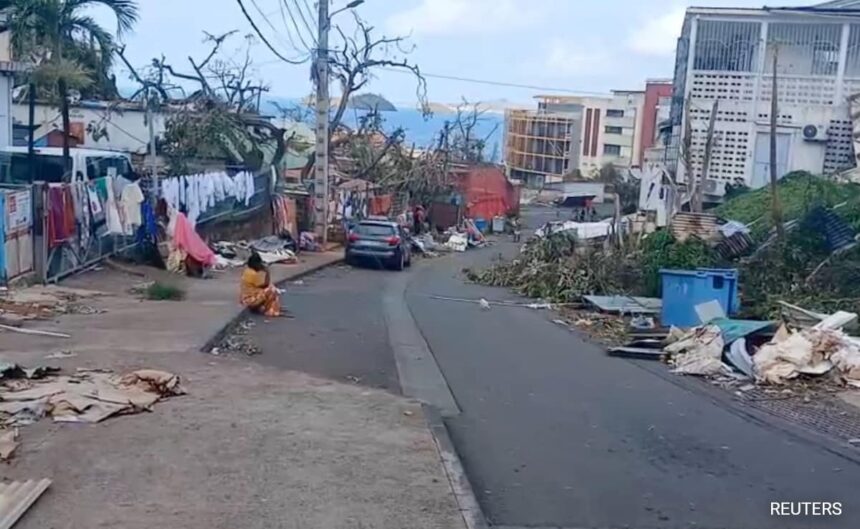A devastating cyclone has wreaked havoc on the island of Mayotte, a French overseas territory located off the coast of East Africa. Local media images have captured the heartbreaking scenes of a mother pushing a newborn baby’s crib along a flooded hospital corridor, while capsized police boats and uprooted coconut trees litter the landscape.
French President Emmanuel Macron expressed his condolences to the people of Mayotte, acknowledging the loss of lives and the destruction caused by the cyclone. Thousands of people have attempted to make the perilous journey from Comoros to Mayotte in search of a better standard of living and access to the French welfare system.
Mayotte is home to over 100,000 undocumented migrants, according to the French interior ministry. The exact death toll from the cyclone remains uncertain, as the Muslim tradition in Mayotte requires burials to take place within 24 hours, making it challenging to determine the full extent of the tragedy.
With over three-quarters of the population living below the French poverty line, Mayotte has been plagued by social unrest and gang violence for decades. Earlier this year, tensions escalated due to a water shortage, further exacerbating the challenges faced by the island’s residents.
In response to the disaster, an air bridge is being established from Reunion island, another French overseas territory, to provide aid and support to Mayotte. The cyclone marks the first major test for Prime Minister Francois Bayrou, who was recently appointed by President Macron following the collapse of the previous government.
The cyclone also impacted northern Mozambique, with reports of damage to power and telecommunication infrastructure. In Comoros, two people sustained minor injuries, 24 were displaced, and 21 homes were destroyed. The historical background of Mayotte, colonized by France in 1843 and still governed from Paris, adds a complex layer to the ongoing challenges faced by the island.
As the people of Mayotte begin the long road to recovery, the international community stands in solidarity with them in their time of need. The resilience and strength of the island’s inhabitants will be crucial in rebuilding their lives and communities in the aftermath of this devastating natural disaster.







